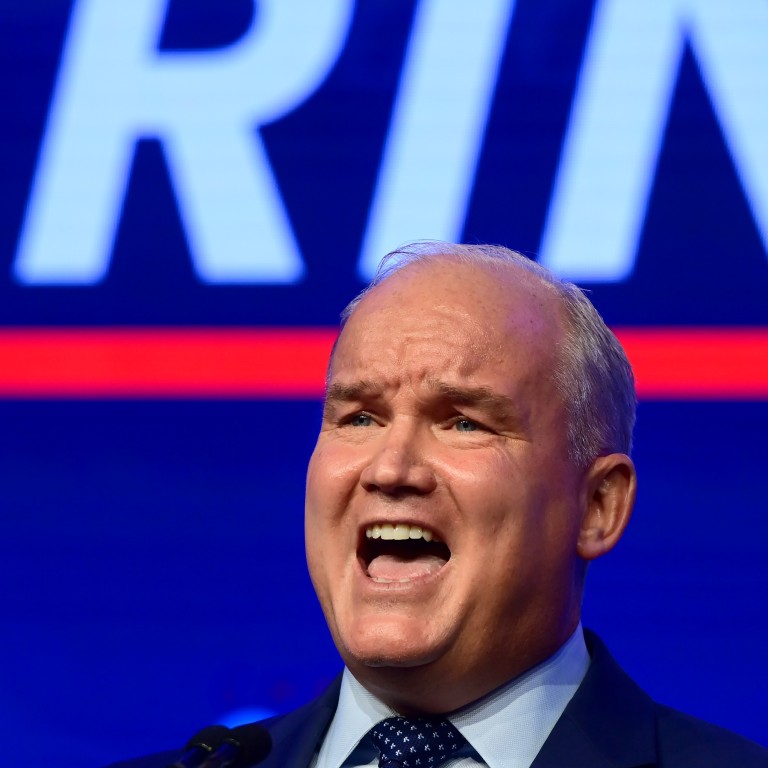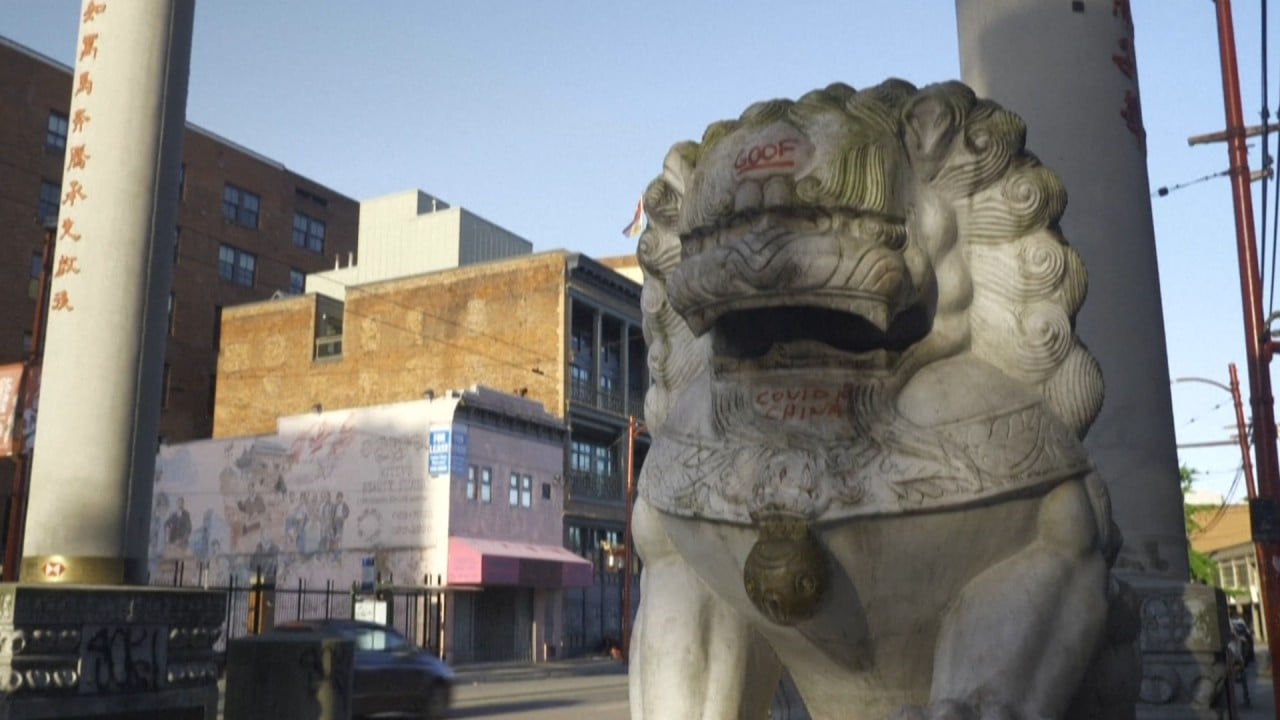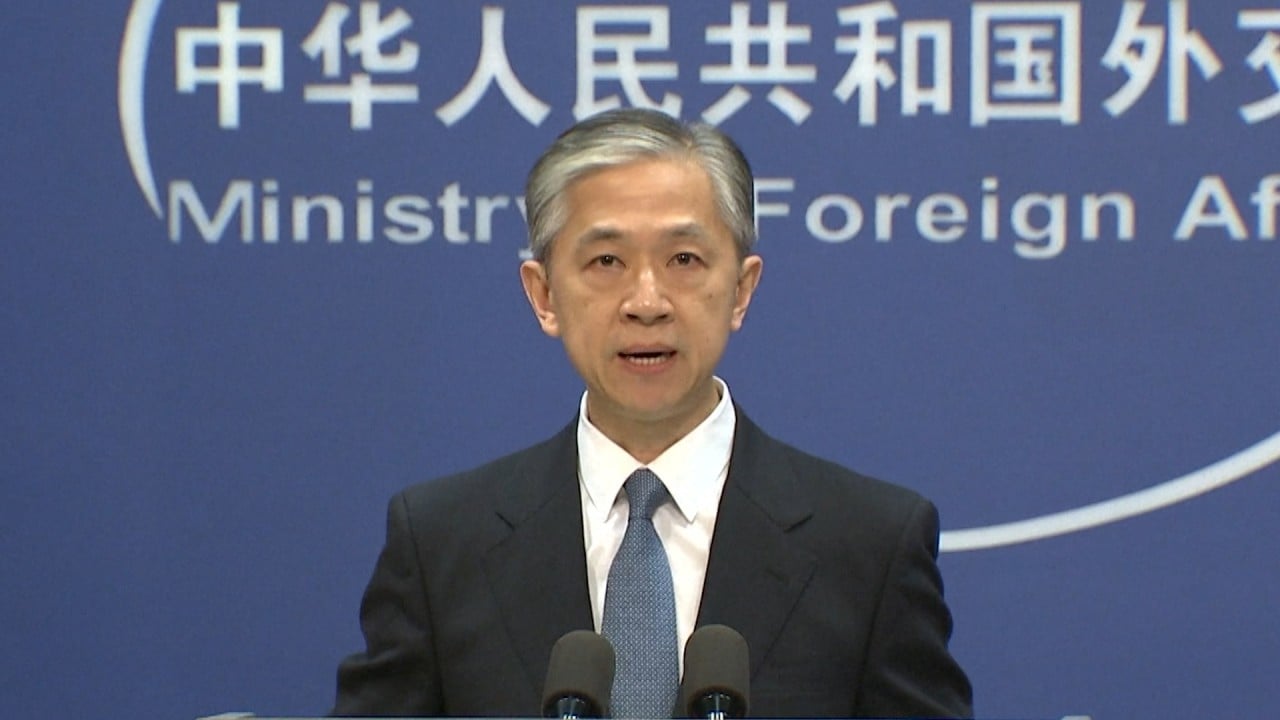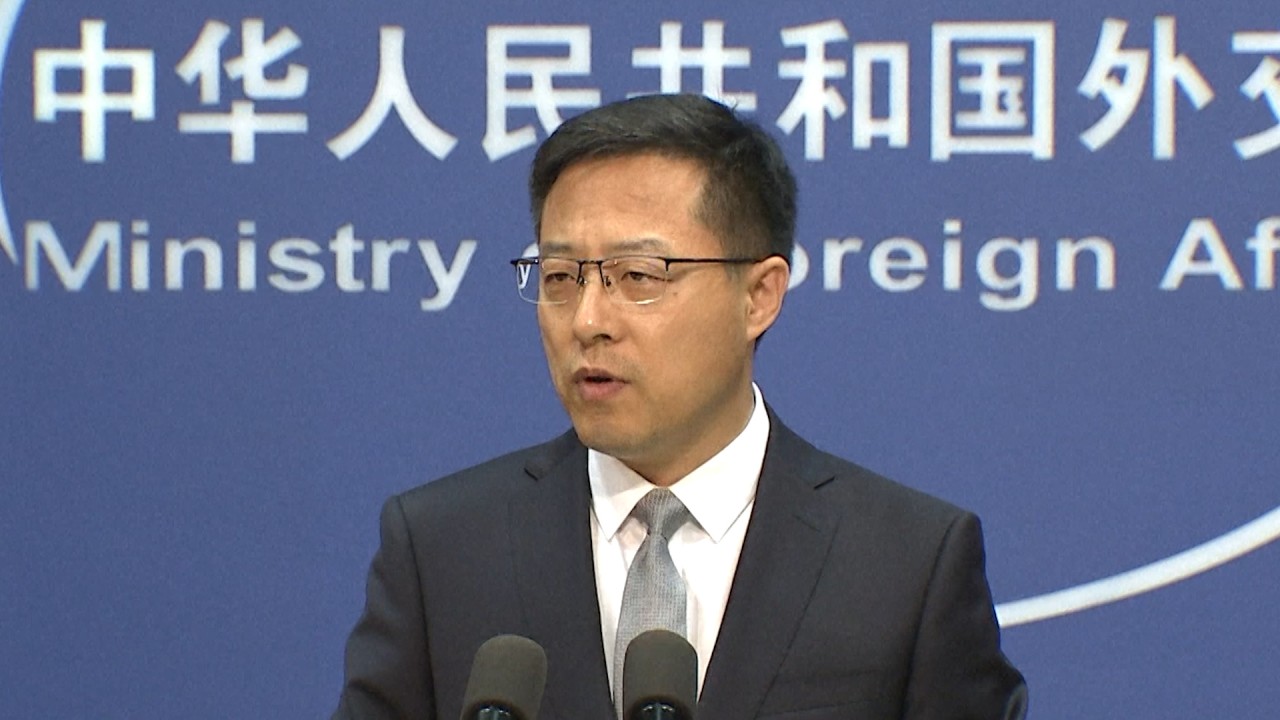
Canada’s China critic takes helm of opposition party as Trudeau seeks new mandate
- Erin O’Toole’s successful campaign promised a tough approach to Beijing, with return of detained Canadians a priority
- Attitudes to China are shaping political debate but there are fears of a rising anti-Asian tone
Canadian commentators say the concerns about China are shaping part of the political debate in the country, but warn it also risks generating an anti-Asia tone.

01:40
Anti-Asian attacks increase in Canada since start of coronavirus pandemic
Trudeau has called for a suspension of parliament until September 23, saying his government needs time to pull together a post-Covid-19 economic recovery plan, though his critics say it is an attempt to delay an ethics inquiry. His plan will face a confidence vote in parliament and could force an election if it fails.
O’Toole’s victory comes amid a wave of souring views on China, led by the United States which has slapped sanctions on Chinese leaders and companies for issues ranging from alleged human rights abuses to predatory trade practices.
Countries like Britain, France, and Germany have joined in with misgivings about Beijing’s global intentions, even though China is one of their biggest trading partners.
“There is no greater geopolitical issue than dealing with the Communist Party of China’s intentions to impose its own model of authoritarian governance on the world and erode a rules-based approach,” O’Toole’s campaign platform read.
It added that a leader during the Cold War needed a plan to deal with the Soviet Union, and “any serious candidate for the office today needs a plan to deal with China”.
No clear end to China-Canada relations slide which began with Huawei arrest
In June, senior legislators from eight countries, including Canada, formed the Inter-Parliamentary Alliance on China “to promote a coordinated response between democratic states”. That number has since expanded to 16.
O’Toole’s stance on China represents a “pretty strong consensus” in the Conservative Party, said Lynette Ong, a professor with the University of Toronto’s Munk School of Global Affairs and Public Policy.
The newly-minted opposition leader has waded in on Hong Kong, saying, if elected, he would nullify any extradition agreements with the city after Beijing’s passage of a national security law. Canada suspended its extradition pact in July. O’Toole has also said he would make it easier for Hongkongers to apply for visas and entry as students or refugees.
“We are watching a democracy die before us. If any of the brave activists who have fought communism now choose to flee, we should welcome them in Canada,” he wrote on Twitter in July, in reference to Hong Kong.

01:15
China suspends Hong Kong extradition treaties with Canada, Australia, UK
O’Toole, who was selected as the Conservative Party’s shadow minister for foreign affairs last August, framed Trudeau’s approach to Beijing as “naive” as far back as 2017. In November last year he overcame Trudeau’s opposition to establish a legislative body to review Canada’s China policy, months before legislators in Britain and the US took a similar step.
“In his rhetoric and statements, he has been interchangeable with Mike Pompeo or some of the more ideological parts of the Trump administration,” said Paul Evans, a professor with the University of British Columbia’s School of Public Policy and Global Affairs.
Evans said a key element of O’Toole’s China policy would be building an international coalition of like-minded countries that would seek “collective confrontation” against Beijing, a strategy both conservative and liberal governments in Canada have previously avoided. O’Toole has also suggested economic decoupling from China.
“Everybody looks for allies or partners on specific issues. But this is a broader orientation, a world view of friends and enemies. And China is the enemy,” said Evans. “Under O’Toole, it would be very likely that Canada would become a participant in Cold War 2.0 against China.”
Video: Spy case against two Canadians in China for ‘political gains’, says Trudeau
O’Toole’s platform calls for barring Chinese telecoms giant Huawei from Canada’s 5G telecommunications network, bringing it in line with the US, Australia and Britain, its partners – with New Zealand, where Huawei is under review – in the Five Eyes intelligence-sharing network.
Canada’s foreign minister Francois-Philippe Champagne met with his Chinese counterpart Wang Yi in Rome on Tuesday and again called for the immediate release of Kovrig and Spavor, according to a ministry statement.
The statement also called for immediate access to both men and said China’s actions were in violation of the Vienna Convention on Consular Relations.

01:05
China urges Canada to immediately release Huawei CFO Meng Wanzhou
China’s foreign ministry, in its account of the meeting, said the unprovoked detention of Chinese citizens by Canada had brought serious difficulties to the relationship.
O’Toole’s platform includes a push for sanctions against officials responsible for the detention of Kovrig and Spavor, as well as those involved in the internment of Uygurs in Xinjiang, cyberattacks on Canadian companies, and Beijing’s clampdown in Hong Kong.
Throughout the campaign, O’Toole used these issues to frame Trudeau as weak on China, in rhetoric that echoes the US presidential campaigns of both Donald Trump and his Democratic opponent Joe Biden, with each using the other’s record to claim their victory would be a boon for Beijing.
O’Toole and other critics have also taken aim at China’s United Front Work Department, a unit of the Communist Party that focuses on connecting with ethnic Chinese abroad. Its detractors say it seeks to capture influence and run disinformation campaigns, particularly among Canada’s large ethnically Chinese community, which numbers nearly 1.8 million.
Don’t blame us for Beijing’s Covid-19 ‘cover-up’, Chinese-Canadian group says
Some commentators say the debate is contributing to a spike in anti-Asian sentiment and hate crimes, a trend seen in other countries grappling with the issue of Chinese influence, such as Australia and the US.
“In the air, there are some McCarthyite-like tendencies,” Evans said. “Some on the conservative side have indicated that the advocates of what I might call a more pragmatic approach to China are not only mistaken in their views, but they lack integrity and in some cases their loyalty is in question.”
Evans stressed he did not believe O’Toole was trying to play into these sentiments, saying “this is not a party of racists,” while noting that how they addressed questions of influence was something to watch carefully.
Ong agreed. “The debate hasn’t been handled well – the McCarthyite-like voices are so much louder.”
How mysterious Chinese spiritual group made itself at home in Vancouver
In response to a report of rising hate crimes against Canada’s Asian population, O’Toole tweeted in May: “This is unacceptable. We must always distinguish between the criminality of the Communist Party of China and the Chinese people who are its victims.”
Ong said that, since the arrest of Kovrig and Spavor, Trudeau and the Liberal Party had found themselves backed into a corner, unsure of how to pursue relations with China both politically and strategically.
This is in part due to the tough line taken by the Trump administration, which has made Trudeau reluctant to take a public stance on issues such as Huawei because “we will either be punished by the US or punished by China,” she said.
Canada faces pressure to ban Huawei after UK ruling risks marooning Ottawa
Trudeau may be waiting until after the November election to chart a clearer course on China, viewing a potential Western alliance led by a Biden administration as more effective in priorities such as securing the release of Kovrig and Spavor, Ong said.
Evans said that, if O’Toole were to become Canada’s prime minister, he could be forced to back down on some of the more ambitious parts of his agenda, such as economic decoupling from China.
“Will he moderate if he has to take real account of interests in the country, particularly those economic interests, the cultural interests, the people-to-people contacts with China that are so great?” he said. “We don’t know. But he may, once he has to actually take responsibility.”

